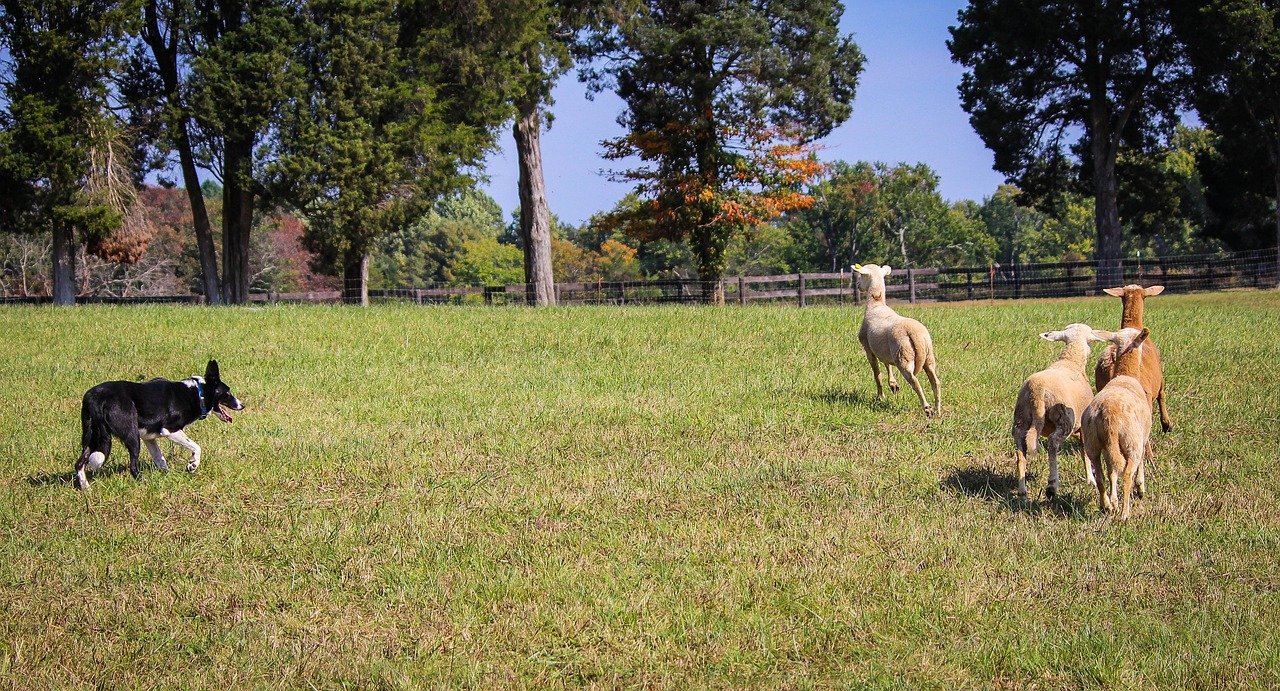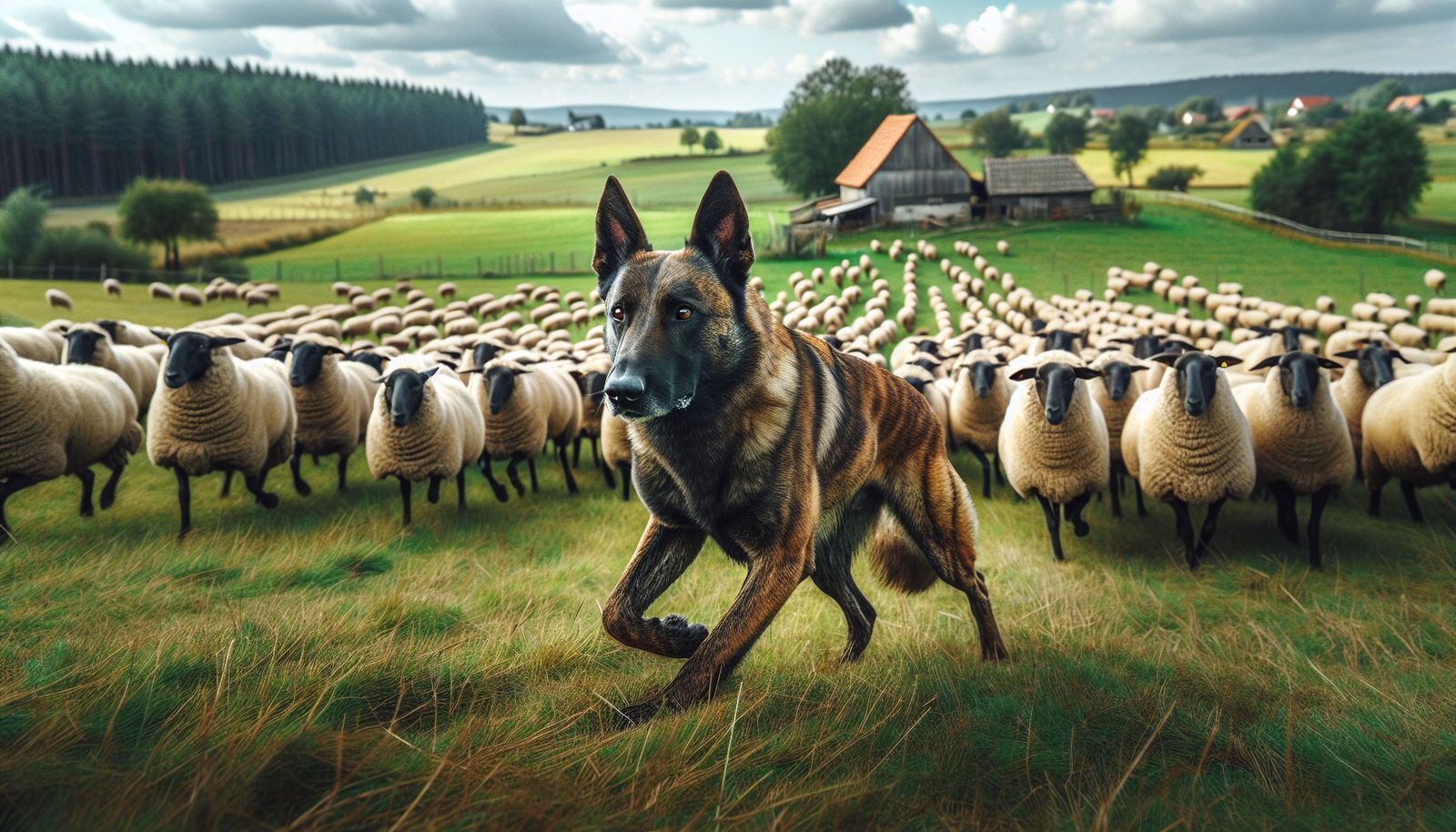Are you curious to know whether Dutch Shepherds possess herding instincts? If so, you’re in the right place! In this article, we will explore the fascinating world of Dutch Shepherds and uncover whether they inherit the natural instincts for herding. Whether you’re a proud Dutch Shepherd owner or simply intrigued by these intelligent and versatile dogs, get ready to dive into the world of herding instincts and find out if Dutch Shepherds are born to herd.
History of Dutch Shepherds
Origins of Dutch Shepherds
The Dutch Shepherd, also known as Hollandse Herdershond, is a breed that originates from the Netherlands. They have a long history of being working dogs, specifically bred and trained for various tasks such as herding and guarding livestock. The exact origins of the Dutch Shepherd are unclear, but it is believed that they were developed in the late 1800s through the crossbreeding of local herding dogs with Belgian and German shepherd dogs.
Working Duties of Dutch Shepherds
Dutch Shepherds have been primarily utilized for herding livestock, including sheep and cattle. Their exceptional herding abilities, intelligence, and agility make them well-suited for this task. They are known to be proactive and highly vigilant, making them excellent at overseeing large flocks and ensuring their safety and well-being. Additionally, Dutch Shepherds have also been employed in other working roles such as guarding, police work, search and rescue, and competitive sports.
Characteristics of Dutch Shepherds
Appearance and Physical Traits
Dutch Shepherds are medium to large-sized dogs with a well-muscled and athletic build. They have a strong and balanced structure that allows them to perform their working tasks efficiently. Their coat is short and dense, providing protection from various weather conditions. Dutch Shepherds come in three coat varieties – short-haired, long-haired, and wire-haired. The most common color is brindle, but they can also be seen in solid-colored coats, such as fawn or gray.
Temperament and Personality
Dutch Shepherds are renowned for their intelligence, loyalty, and versatility. They possess a strong work ethic and thrive on being given tasks and responsibilities. They are highly trainable, quick to learn, and eager to please their owners. Dutch Shepherds are known to be confident, alert, and assertive, making them excellent watchdogs. They are also known for their affectionate nature and can form strong bonds with their family, including children. However, they can be reserved and wary of strangers, making early socialization crucial for their development.

Herding Instincts in Dogs
Understanding Herding Instincts
Herding instincts refer to a dog’s natural ability and willingness to control the movement of livestock. It is an innate behavior that has been preserved through generations of selective breeding. Dogs with herding instincts are equipped with the necessary skills, such as stalking, chasing, and directing livestock, in order to assist their human handlers in managing and organizing herds.
Breeds Known for Herding Instincts
While many breeds demonstrate herding instincts to some degree, there are certain breeds that excel in this area due to years of selective breeding for herding purposes. Some of the most well-known herding breeds include Border Collies, Australian Shepherds, and German Shepherds. These breeds have been specifically bred and trained for their exceptional herding abilities, making them highly sought after for working on farms and ranches.
Herding Instincts in Dutch Shepherds
The Heritage of Herding
Dutch Shepherds have a rich heritage as dedicated herding dogs. Their ancestry can be traced back to the working dogs of the Dutch farmers, who relied on the breed’s exceptional herding instincts to manage their livestock. Over the years, Dutch Shepherds have developed and refined their herding skills through selective breeding and training, making them highly competent and reliable herding dogs.
Anecdotal Evidence of Herding Behavior
Numerous anecdotes and stories from Dutch Shepherd owners and breed enthusiasts provide evidence of the breed’s innate herding instincts. Many owners report that their Dutch Shepherds exhibit herding behaviors at a young age, such as nipping at heels, circling, and directing movements. Some even mention that their Dutch Shepherds have successfully herded livestock despite never receiving formal herding training. These stories illustrate the strong intrinsic herding drive that exists within the breed.

Training Dutch Shepherds for Herding
Working with Natural Instincts
When training Dutch Shepherds for herding, it is important to work with their natural instincts and channel their energy and drive towards productive herding behaviors. Building a strong bond and establishing clear communication between handler and dog are essential in training Dutch Shepherds effectively. Utilizing positive reinforcement methods, such as rewards and praise, can help motivate and reinforce desired herding behaviors.
Teaching Basic Commands
Before embarking on herding-specific training, it is crucial to teach Dutch Shepherds basic obedience commands such as sit, stay, come, and heel. These commands lay the foundation for effective communication and control during herding sessions. It is important to establish a solid obedience base before progressing to advanced herding training.
Specific Herding Training Techniques
Once basic obedience is established, specific herding training techniques can be introduced. These techniques involve teaching the Dutch Shepherd to respond to commands such as “walk up,” “go by,” and “away.” Patience, consistency, and repetition are key when training Dutch Shepherds for herding. Training sessions should be kept short but frequent to maintain the dog’s focus and enthusiasm for the task at hand.
Herding Activities for Dutch Shepherds
Competitions and Trials
For Dutch Shepherd owners interested in showcasing their dog’s herding skills, participating in herding competitions and trials can be an engaging and rewarding experience. These events allow Dutch Shepherds to demonstrate their abilities in controlled settings, competing against other herding dogs. They are judged on their precision, obedience, and overall herding instinct.
Herding on Farms and Ranches
Many Dutch Shepherds continue to serve as active herding dogs on farms and ranches around the world. Their innate herding instincts, coupled with their athleticism and endurance, make them valuable assets in managing and moving livestock. Dutch Shepherds excel at tasks such as gathering, driving, and separating herds, ensuring efficient and effective livestock management.
Potential Challenges in Herding Dutch Shepherds
High Energy Levels
Dutch Shepherds are known for their abundant energy and require an outlet for their physical and mental well-being. When considering herding activities with Dutch Shepherds, it is essential to provide them with regular exercise and mental stimulation to avoid behavioral issues that can arise from pent-up energy.
Prey Drive and Focus
As herding dogs, Dutch Shepherds possess a natural prey drive that can be beneficial for their herding tasks. However, this strong instinct can also pose challenges when working with small or flighty livestock, as the Dutch Shepherd may become overly focused on pursuing or chasing. Proper training and management are necessary to ensure the safety and well-being of both the dog and the livestock.
Environmental Sensitivity
Dutch Shepherds, like other working dogs, can be sensitive to their environment. They may be influenced by factors such as weather conditions, unfamiliar surroundings, or unexpected sounds and movements. It is important to gradually expose them to different environments and stimuli to build their confidence and minimize any environmental sensitivities that may affect their herding performance.
Benefits of Herding with Dutch Shepherds
Mental Stimulation
Herding activities provide Dutch Shepherds with significant mental stimulation, as they engage in tasks that require problem-solving and decision-making. The mental challenges of herding help keep their minds sharp and prevent boredom, resulting in a content and well-rounded dog.
Exercise and Physical Fitness
Herding demands physical agility, endurance, and speed, making it an excellent form of exercise for Dutch Shepherds. Engaging in herding activities allows them to fulfill their innate instinct to be active and work alongside their human handlers. Regular herding sessions contribute to their overall physical fitness and can help prevent obesity-related health issues.
Bonding and Relationship Building
Participating in herding activities with Dutch Shepherds strengthens the bond between dog and handler. The teamwork and communication required during herding sessions foster trust and a deeper connection. It also provides an opportunity for both dog and handler to learn and grow together, further solidifying their relationship.

Other Instincts and Activities Dutch Shepherds Excel In
Guarding and Protection
Dutch Shepherds have a natural instinct to protect and guard their family and territory. They are highly observant and quick to react to perceived threats, making them excellent guard dogs. Their strong protective instincts, coupled with their intelligence and trainability, allow them to excel in roles such as home protection and personal security.
Search and Rescue
Due to their exceptional scenting abilities, intelligence, and agility, Dutch Shepherds are often utilized in search and rescue operations. Their keen sense of smell enables them to locate missing persons or detect hidden objects in various environments. Their physical prowess allows them to navigate challenging terrain, making them valuable assets in search and rescue efforts.
Competitive Sports
Dutch Shepherds thrive in competitive sports due to their athleticism, focus, and drive to succeed. They excel in activities such as agility, obedience, tracking, and dock diving, where their natural abilities and enthusiasm can be showcased. Participating in these sports not only provides physical exercise but also strengthens the bond between dog and handler through shared goals and achievements.
Conclusion
Dutch Shepherds possess a rich history as herding dogs, tracing their origins back to the Netherlands. Their exceptional herding instincts, combined with their intelligence, loyalty, and versatility, make them outstanding working dogs. Through proper training and socialization, Dutch Shepherds can effectively channel their herding abilities into productive and rewarding activities. Whether participating in herding competitions, working on farms and ranches, or engaging in other instinct-driven activities, Dutch Shepherds continue to demonstrate their exceptional skills and make a positive impact in various roles.


